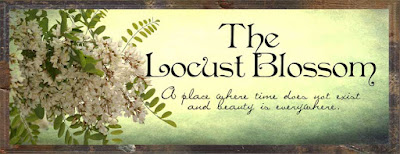It's just a way, a way of living.
We move about tending animals, foliage, and soil alike
while the seasons change around us.
It's what so many generations before us did in some fashion or other.
Putting-by in order to keep ourselves and our families
through the cold months of winter ahead.
For centuries, this was just referred to as living.
In recent years however, there seems to be an infatuation with names.
Like members of an elite club, members proclaim that they are preppers, homesteaders, locavores, etc.
There are of course good qualities to each and all of these; however,
if we look a little deeper, there is a word that encompasses all of them.
That word is tradition.
It's not a name, just a word.
Traditionally, people worked from their homes, providing for themselves and making do with what was available to them either by their own doing or by procuring necessities through trading/bartering with neighbors for goods and services. Doesn't that sound familiar?
Those of us who partake in such ventures today are considered by some to be anomalies, rebels, or outcasts.
But those of us who are doing the partaking know better.
We know with a knowledge greater than that portrayed by the consumer society that what we are doing is right.
How do we know?
We are following Mother Nature's example and in return,
she usually helps us out.
she usually helps us out.
When we plant the seeds, she waters.
When she provides the sun and warmth, we provide the water.
When she forgets to take care of the animals, we step up.
When we aren't there during the birthing of a lamb, calf, or kid, she usually handles it just fine.
It's a partnership, working together in tandem and taking turns.
In return for working with her, we are rewarded.
We are rewarded not only with clean nutritious foods and physical well being, but with that knowledge as well.
As the summer heat begins to ebb, the heat in our kitchens and around our homes is turned up.
The sound of the pressure cooker hisses, the knife claps against the wooden cutting board, canning jars and lids clank and chime, and the dehydrator hums along all joining in chorus to create a commotional hymn.
Meanwhile, out back, baskets and bowls are being filled.
There are now fewer animals to feed during the cold up-coming months.
And there is a woody scent and a slight haze trailing from the smoker or smokehouse if you are so fortunate.
We are those who know how many quarts and pints of veggies, how many pounds of meat, and how much feed for the stock we need to last us through the year.
We plan, work, prepare, and preserve accordingly.
We carry on, keeping alive and honoring the ways of so many
who have gone before us.
who have gone before us.
And it's with gratitude and great reverence that we pass these skills and this knowledge on to the next generation.
It's not for any kind of monetary pay or prideful glory.
It's because, it's just the right thing to do.
This is tradition and indeed,
this is living.






